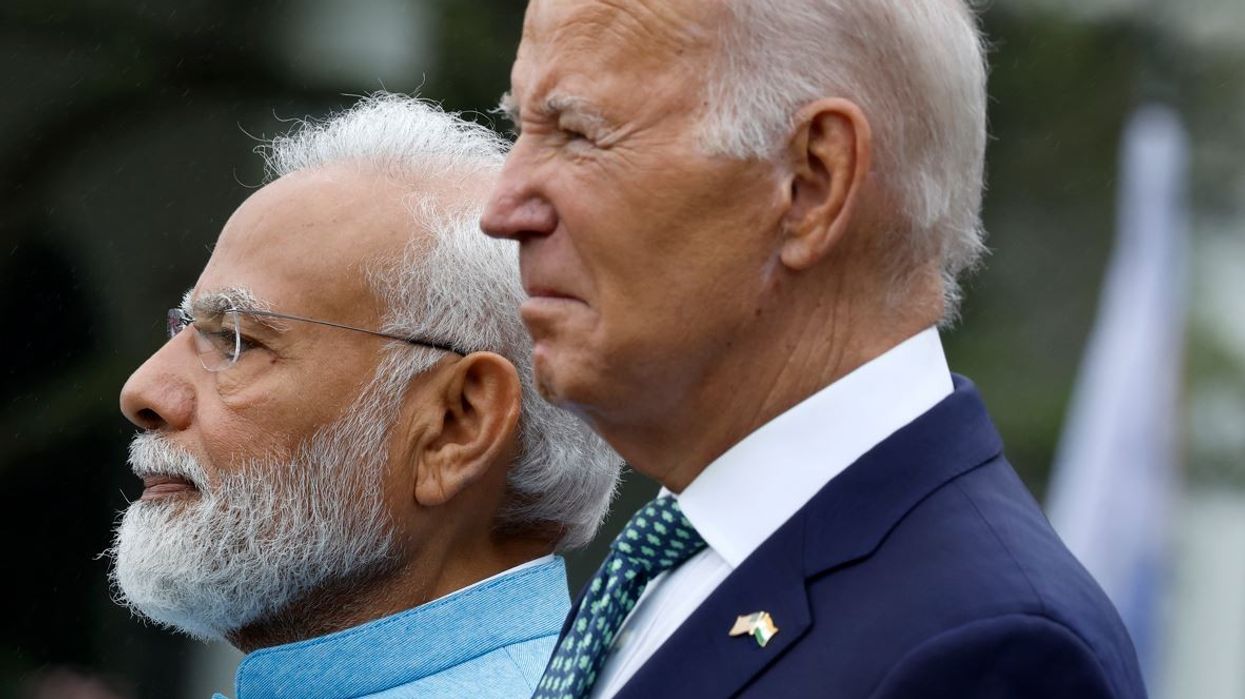LEADERS of Australia, India, Japan and the US expanded joint security steps in Asia's trade-rich waters as outgoing US president Joe Biden hosted counterparts from the Quad grouping established due to shared concerns about China.
Biden, meeting Japanese prime minister Fumio Kishida, Indian prime minister Narendra Modi and Australian prime minister Anthony Albanese near his Delaware hometown on Saturday (21), stressed the importance of maintaining the Quad, which he sees as a signature foreign policy achievement. He will leave office after the Nov. 5 US presidential election.
The leaders announced joint coast guard operations next year that will include Australian, Japanese and Indian personnel spending time on a US coast guard vessel. The countries plan increased military logistics cooperation, officials said. They did not comment on where the coast guard activity would take place.
The leaders also planned to expand an Indo-Pacific Partnership for Maritime Domain Awareness launched two years ago.
While the White House said the Quad summit was directed at no other country and that Beijing should find no issue with the initiative, Biden started the summit's group session with a briefing on China. In a joint statement that did not name the Chinese government by name, the leaders condemned "coercive and intimidating maneuvers in the South China Sea."
Analysts said new maritime security initiatives would send a message to Beijing and represent a further shift of emphasis of the Quad's activities to security issues, reflecting growing concerns about China's intentions.
Chinese president Xi Jinping has objected to the Quad grouping as an effort to encircle Beijing and ramp up conflict.
Biden described Beijing as shifting tactics but not strategy, while continuing to test the United States in the South and East China Seas as well as the Taiwan Strait.
"We believe Xi Jinping is looking to focus on domestic economic challenges and minimize the turbulence in China diplomatic relationships, and he's also looking to buy himself some diplomatic space, in my view, to aggressively pursue China's interest," Biden said in remarks carried on an official event feed.
Beijing claims almost the entire South China Sea, including territory claimed by the Philippines, Brunei, Malaysia and Vietnam. It also claims territories in the East China Sea contested by Japan and Taiwan. China also views democratically governed Taiwan as its own territory.
The leaders' joint statement included sharp language about North Korea, condemning its ballistic missile launches and "malicious cyber activity." A US official said the leaders shared concern about Russian military assistance for North Korea.
The group is stepping up work to provide critical and security technologies, including a new open radio access network, to the Pacific Islands and Southeast Asia, regions of intense competition with China.
A health initiative by the leaders is aimed at combating cervical cancer.
Lisa Curtis, an Asia policy expert at the Center for a New American Security and a former administration official, said India, which is not part of any military alliance, has been worried about perceptions that the Quad could be militarizing the Indo-Pacific.
"But I think China's recent maritime aggression could be changing the equation for India and could be prompting India to become a bit more open to the idea of Quad security cooperation," she said.
Analysts and officials say Biden hosting the Quad is part of efforts to institutionalize the body ahead his departure from office and that of Kishida, who is stepping down after a leadership contest next week, and elections in Australia by next year.
Asked about the group's staying power, Biden grasped Modi by the shoulder and said the group was here to stay.
Albanese called the Quad's coast guard plan "very important" as the "four countries will have personnel on perhaps a single vessel, improving the interoperability and the cooperation that occurs", according to the transcript of a press conference he held in Philadelphia.
Before the summit, Albanese met with Biden at his home and discussed bilateral cooperation between the two close allies across defense and security, including in the Indo-Pacific.
The Quad met at foreign minister level under the previous administration of Donald Trump, who is running against vice president Kamala Harris in November, and enjoyed bipartisan support, as reflected by the formation of a congressional Quad Caucus ahead of the summit. Biden elevated the Quad to the leader level in 2021.
(Reuters)





